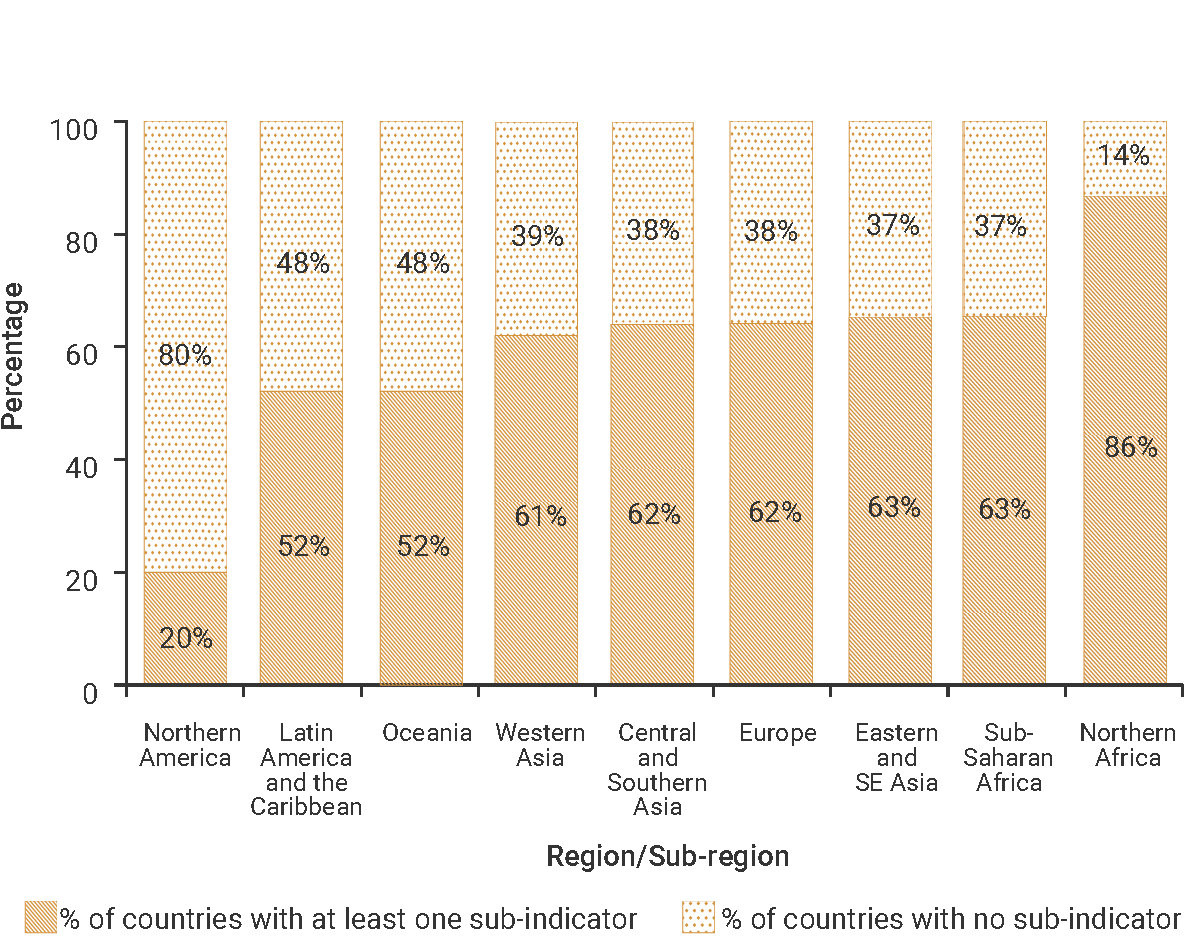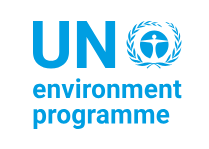SDG Indicator 14.6.1: Degree of implementation of international instruments aiming to combat illegal, unreported and unregulated fishing
1. Key features and metadata
Definition: This indicator measures progress by countries in the degree of implementation of international instruments aiming to combat illegal, unreported and unregulated fishing (IUU fishing).
| Sub-indicator | Disaggregated by |
|---|---|
|
ER_REG_UNFCIM Progress by countries in the degree of implementation of international instruments aiming to combat illegal, unreported and unregulated fishing (level of implementation: 1 lowest to 5 highest) |
No current data disaggregation available. |
Sources of information: Data is provided by the National Fishery Ministries/Departments by way of a biennial questionnaire to the Food and Agriculture Organization of the United Nations (FAO), which is responsible for their compilation.
2. Data availability by region, SDG Global Database, as of 02 July 2025

3. Proposed disaggregation, links to policymaking and its impact
| Proposed disaggregation | Link to policymaking | Impact |
|---|---|---|
|
Degree of implementation of international instruments aiming to combat illegal, unreported and unregulated fishing, by instrument and by country (level of implementation: 1 lowest to 5 highest):
Applies to:
|
Each of these international instruments has its own provisions and specific requirements to prevent IUU fishing (i.e. general measures in relation to IUU fishing activities, flag State responsibilities, coastal State measures, port State measures, and internationally agreed market-related measures). It is essential that decision-makers have a clear understanding of the level of implementation of each of them to determine the best levers of action to fight IUU fishing. This disaggregation provides a detailed picture of the efforts made by countries, instrument by instrument, to prevent and control IUU fishing. Developing countries, most particularly Small Island Developing States (SIDS) and Least Developed Countries (LDCs), face specific challenges in fully implementing these international legal instruments due to the lack of capacity and resources. Therefore, they require the support of the international community to build capacity, implement relevant policy frameworks and secure the necessary funding (FAO 2023d). |
IUU fishing is regarded as one of the biggest threats to the sustainability of marine ecosystems and its biodiversity. It undermines national efforts to protect and sustainably manage fish stocks with adverse impacts on the marine habitats, distorted competition and coastal communities, particularly in developing countries. It is sometimes associated with other illegal actions (e.g. corruption and organized crime). In particular, in developing countries that often lack the capacity to set up effective regulatory and operational frameworks for monitoring, control and surveillance. It affects local fisheries (particularly small-scale fisheries) and value chains. Subsequently, this contributes to increased poverty and food insecurity. It also disadvantages and discriminates against honest fishers (FAO n.d.c). Supporting the fight against IUU fishing by helping countries to develop national policy and administrative frameworks adapted to their national circumstances is a priority for the UN, the Regional Fisheries Management Organizations and the international community (FAO 2001). |

